The smart home is no longer a futuristic concept reserved for science fiction movies. In Quebec, more and more homeowners are discovering the concrete benefits of home automation to improve their daily quality of life. Whether you’re planning a new build or want to upgrade your current home, incorporating connected technology can transform your home into a more comfortable, secure, and energy-efficient space.
The growing popularity of connected homes can be explained by the rapid evolution of technologies and their increasing accessibility. Systems that were once complex and expensive are now within the reach of the average homeowner, offering practical solutions for automating lighting, controlling temperature, monitoring security, and optimizing energy consumption.
This guide takes a detailed look at all the essentials for successfully implementing a smart home plan, from essential technologies to budget considerations to challenges specific to Quebec families. We will support you in this transition to a more connected and intelligent lifestyle.
Table of Contents
What is a smart home?
A smart home uses connected technologies to automate and remotely control various home systems. This home automation allows homeowners to manage lighting, heating, security, appliances, and many other functions via a mobile app or voice commands.
The modern connected home works through a network of sensors, smart devices, and a central hub that coordinates all activities. These systems learn your habits and preferences to automatically optimize comfort and energy efficiency.
The evolution of home automation in Quebec follows global trends while adapting to local climatic specificities. Smart heating systems are particularly popular, allowing for substantial savings during Quebec’s long winters.
The benefits of a smart home
Considerable energy savings
One of the main attractions of home automation lies in its potential for energy savings. Smart thermostats can reduce heating costs by 10-23% by automatically optimizing the temperature according to your schedules and preferences. Connected LED lighting consumes up to 75% less energy than traditional bulbs.
Quebec homeowners report average savings of $200 to $500 per year on their energy bills after installing a complete home automation system. These savings often compensate for the initial investment within a few years.
Enhanced security
The connected home offers 24/7 surveillance thanks to smart cameras, motion detectors and connected alarm systems. You receive instant notifications on your phone in case of intrusion, smoke or water leaks.
Smart locks allow you to control access remotely, assign temporary codes to guests, and monitor who enters and leaves your home. This peace of mind is especially valuable for families with children or seniors living alone.
Everyday comfort and convenience
Imagine coming home to a house already lit and heated to the perfect temperature, with your favorite music playing in the background. Affordable home automation systems make these scenarios a reality by automating your daily routines.
Voice assistants allow you to control all devices with simple commands, especially useful when your hands are busy in the kitchen or with the kids.
Increase in real estate value
Smart homes typically sell for 5% to 10% more than comparable traditional properties. This added value is due to the growing attractiveness of modern technologies and long-term energy savings among buyers.
Key technologies for your smart home
Connected lighting
Smart lighting is often the ideal entry point to home automation. Smart LED bulbs allow you to adjust the intensity, color and program custom lighting schedules.
Motion detectors automate the lighting of corridors, stairs and outdoor spaces, improving safety while reducing energy consumption. Programmable ambient lighting creates atmospheres for every time of day.
Thermostats and climate control
Smart thermostats are the most cost-effective investment in home automation. They learn your habits to automatically optimize the temperature, allowing significant savings on heating and cooling.
Smart zoning systems allow you to control the temperature of each room individually, avoiding heating or cooling unoccupied spaces. This approach is particularly effective in multigenerational homes.
Connected Security Systems
Smart security combines HD cameras, motion detectors, video doorbells and alarm systems in an integrated solution. These systems send instant alerts and allow remote monitoring via smartphone.
Smart smoke, carbon monoxide and water leak detectors add an extra layer of protection, especially important in smart homes in Quebec where winter conditions can create specific risks.
Integrated entertainment systems
Multi-zone audio allows different music to be played in each room, controlled from a central app. Smart TVs integrate seamlessly with smart home systems to create immersive entertainment experiences.
Planning your smart home project
Assessment of your specific needs
Start by identifying your priorities: energy savings, safety, comfort or entertainment? This analysis will guide your technological choices and your budget. Families with young children will often prioritize safety and supervision, while retired couples will prioritize comfort and accessibility.
Consider your current and future lifestyle. A growing family will benefit from scalable systems, while an intergenerational suite will require separate controls to respect each generation’s autonomy.
Realistic budgeting
An affordable home automation system starts at around $2,000 for smart lighting and a smart thermostat in an average home. A complete system including security, audio and advanced automation can reach $15,000 to $25,000.
Plan a phased approach: Start with the technologies that offer the best return on investment, then gradually add more features. This strategy spreads out the costs while allowing you to learn and adapt the system according to your real needs.
Selection of compatible technologies
Compatibility between devices is a major challenge in home automation. Look for established ecosystems like Google Home, Amazon Alexa, or Apple HomeKit that ensure interoperability between different brands.
Check the availability of technical support in Quebec and the warranty offered by the manufacturers. Popular systems usually get better support and regular updates.
Professional installation vs. DIY
Advantages of Professional Installation
The professional home automation installation guarantees optimal integration and complies with Quebec electrical codes. Certified electricians have the expertise to handle complex technical aspects such as network cabling, powering devices, and optimizing the Wi-Fi signal.
Professional installers offer guarantees on their work and provide user training. This approach minimizes the chance of malfunction and maximizes system performance.
DIY approach to save money
Skilled homeowners can install certain components such as smart bulbs, thermostats and wireless cameras themselves. This approach significantly reduces installation costs, which is particularly attractive for affordable home automation.
However, some work requires a licensed electrician in Quebec, such as modifications to the main electrical panel or the installation of dedicated circuits.
Potential challenges and solutions
The initial setup can be complex for the uninitiated. Wi-Fi connectivity issues, device syncing, and scheduling automations require patience and methodology.
Allow some time to learn and don’t hesitate to consult the online guides or contact technical support. Most manufacturers offer detailed resources to make installation and configuration easier.
Integration with multigenerational living
Separate controls for autonomy
In an intergenerational sequence, each generation must be able to control its environment independently. Modern home automation systems make it possible to create separate zones with separate applications and controls.
Grandparents can manage their lighting and temperature without affecting the spaces of other generations, while still benefiting from shared security features. This configuration respects the autonomy of each person while maintaining family cohesion.
Discrete monitoring systems
Home automation offers non-intrusive monitoring solutions to watch over the elderly. Motion sensors can detect falls or unusual inactivity without compromising privacy. Relatives receive alerts in the event of a worrying situation.
Improved accessibility
Voice commands make it much easier for people with limited mobility to use the connected home. Automatic lighting, smart door opening, and voice-controlled thermostats improve daily battery life.
Innovation in smart garages
Access Automation
Modern double garages naturally integrate home automation with remotely controllable smart door openers. These systems allow you to open and close the doors from your vehicle or smartphone, which is particularly practical during Quebec winters.
Parking sensors guiding vehicle entry and exit optimize the use of space, which is crucial in garages with multiple generations of drivers with vehicles of different sizes.
Secure integration
Smart cameras in the garage complete the overall security system, monitoring access and protecting stored vehicles and equipment. Automatic lighting improves safety when traveling at night.
Optimized energy management
Smart LED lighting and charging sockets for electric vehicles transform the garage into a modern energy hub. Management systems can schedule charging during off-peak hours to minimize electrical costs.
Future Smart Home Trends
Built-in artificial intelligence
Home automation systems are evolving towards more sophisticated artificial intelligence, capable of anticipating your needs without explicit programming. These systems analyze your habits to automatically optimize comfort and energy efficiency.
Advanced Energy Integration
The future of connected homes in Quebec will include holistic energy management integrating solar panels, home batteries and smart grids. These systems will optimize energy production, storage and consumption.
Connected Health Wellness
New technologies will monitor indoor air quality, natural light levels, and even sleep patterns to optimize the home environment based on your health and well-being.
Transform your home into a smart and connected space
Smart home systems offer convenience and connectivity, but their installation and compatibility require thoughtful planning. A well-chosen ecosystem and a suitable installation guarantee an optimal experience. That’s why it’s important to learn about the different options available before making a decision.
There is a wide variety of smart home systems available, ranging from smart thermostats and locks to voice assistants and surveillance cameras. Each offers its own features and can be controlled remotely via an app or central hub. Before investing in a system, it’s essential to determine your specific security, automation, and budget needs.
Ready to transform your home into a smart and connected space? Contact us today for personalized advice and to start your project with confidence!
Ready to transform your home into a smart, connected space? Contact our experts for personalized advice!

Other articles you may be interested in!
Multigenerational home plan: reinventing your living space
Open kitchen plan: Trends and tips
Renovation Plans: Essential 7-Step Guide to Successful Project
Is smart home technology secure?
Modern systems incorporate advanced encryption and regular security updates. We recommend reputable brands for a secure setup of your home network.
Can I control my smart home devices remotely?
Absolutely. Mobile apps allow you to control lighting, temperature, security and other functions from anywhere in the world, as long as you have an internet connection.
What are the best smart home devices for energy efficiency?
Smart thermostats offer the best savings, followed by connected LED lighting and smart plugs. Ease of use is also a major advantage of smart thermostats, as they can be controlled remotely via an app on your smartphone.
Do I need a professional installation for a smart home system?
Some appliances like smart bulbs are easy to install, while others require a certified electrician.
How do I choose compatible smart home devices?
Favor a unified ecosystem (Google, Apple, Amazon) and check the links between the different tools. A unified ecosystem is a set of tools and technologies that work in harmony to provide a seamless and uninterrupted user experience. In today’s digital world, it’s essential to choose a reliable ecosystem to manage your data and online activities. The three major tech giants, Google, Apple, and Amazon, each offer their own ecosystem with services such as search engines, mobile operating systems, e-commerce platforms, and much more.



